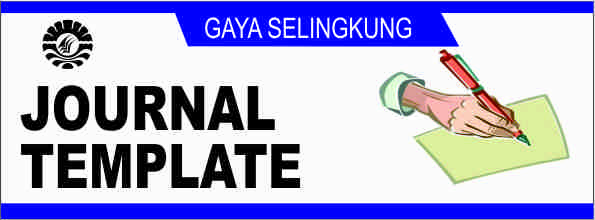Assessing Human Reproductive Cloning and Creationism from the Perspectives of Raelianism and African Belief
(1) Department of Religious Studies and Philosophy, Delta State University, Abraka, Nigeria.
(*) Corresponding Author
DOI: https://doi.org/10.26858/jo.v6i1.15235
Abstract
This paper appraised the issues involved in human reproductive cloning and creationism from the standpoints of Raelian religion and African traditional belief. The methods adopted are descriptive and evaluative. The findings include the fact that human cloning is one of the religious tenets of Raelianism; and that African tradition and culture totally reject reproductive cloning on the ground of its unnaturalness. Finally, the paper from the African traditional paradigm concluded that human reproductive cloning is totally condemnable and should not be practiced on human beings on the ground of unnaturalness, distortion, negation, imperfection, and aberration.
Keywords
Full Text:
PDFReferences
Araujo, R. J. (2007). “The UN Declaration on Human Cloning: a survey and assessment of the debate”. The National Catholic Bioethics Quarterly, 7, pp.129 - 149
Campbell, C. S. (2002). “Cloning Human Beings: Religions Perspectives on Human Cloning”. A Paper Presented to U.S. National Bioethics Advisory Commission, Oregon State University.
Chung, Yang G. et al, (2014). Human somatic cell nuclear transfer using adult cells. Cell Stem Cell, 14(6), pp. 777–780
De-Grey, A., & Rae, M. (2007). Ending Aging: The Rejuvenation Breakthroughs that Could Reverse Human Aging in Our Lifetime. St. Martin’s Press.
Drewal, H. J.(2003). “John Pemberton III and Rowland Abiodun, ‘The Yoruba World’”. Death and the King’s Horseman: Authoritative Text Backgrounds and Context Criticism. Edited by S. Gikandi, W.W. Norton & Company, pp.69.
Edor, J. A., & Odok, J. E. (2010). The Marxian School of Law and the Nigerian Legal System. The International Researcher, 4(1), 91-100.
Edor, J. E. (2005). The inductive predicament as an indispensable sable evil for practical life. Sophia: An African Journal of Philosophy, 8(1), 110-115.
Edor, J. E. (2016). Capital punishment: focus on the sanctity of human life in (Boki), Africa. Sapientia: Journal of Philosophy, 8(1), 86-102.
Edor, J. E. (2016). Wither the "Evil" of Capital Punishment: Focus on the Sixth Commandment of the Decalogue. The Oracle: International Journal of Culture, Religion and Society 3 (4), 102-120
Gogarty, B. (2003). “What Exactly Is An Exact Copy? And Why It Matters When Trying To Ban Human Reproductive Cloning in Australia”. Journals of Medical Ethics, 29, pp.84-89
Haris, J. (1997). “Goodbye Dolly: The Ethics of Human Cloning”. Journal of Medical Ethics, no. 345, p.353
Hefley, J. C. & Lester, M. (1997). Human Cloning: Religions Response. Westminster John Knox, 1997.
Isiramen, C. O. (2001). “Human Cloning: An African Response”. Iroro: Journal of Arts, 8(1 & 2), pp.90-96
Isiramen, C. O. (2001). “Human Cloning: An African Response”. Iroro: Journal of Arts, 8(1 & 2) pp.90-96
Javitt, G. K. & Hudson, K. (2006). Cloning: A Policy Analysis. Genetics and Public Policy Centre, 2006
Kennedy, D. (2007). “Responding to fraud”. Science, vol. 31, no. 5804, 2006, pp.1353ff
Kfoury, C. “Therapeutic cloning: Promises and Issues”. McGill Journal of Medicine, 10(2), pp.112–20.
Mullins, E. Y. (1972). The Christian Religion in Its Doctrinal Expression. Judson Press.
Nelson, R. G. (2009). “Cloning”. Retrieve from www.soc.enotes-com/ethics-humans-article, Nuclear Transfer. Retrieve from www.fosep.org/images/blas-tocyst2.gif , 2009 Human_Cloning_An_African_Perspective_by.pdf
Olasunkanmi, A. (2014). “Human Cloning: An African Perspective”. International Journal of Humanities and Cultural Studies (IJHCS), vol. 1, no. 2, 2014.
Oregon Health & Science University. (2013). “Human skin cells converted into embryonic stem cells: First time human stem cells have been produced via nuclear transfer”. Science Daily, 155.
Ottuh, P. O. (2008). Human Cloning: A Philosophico-Thgeological Appraisa. (unpublished Ph.D Thesis). Ambrose Alli University, 2008
Peil, Margaret. Consensus and Conflicts in Africa Societies: An Introduction to Sociology of Religion. Longmans, 1977.
Peters, T. (2001). Embryonic Stem Cells and the Theology of Dignity. The Human Embryonic Stem Cell Debate, Science, Ethics, and Public Policy. Edited by S. Holland, K. Lebacqz & L. Zoloth. Massachusetts Institute of Technology Press, pp.128-130.
Seyyed, H. A. (2007). Human Cloning in Catholic and Islamic Perspectives. University of Religions and Denominations.
Stone, R.H. & Cozens, A.B. (1975). New Biology for West African Schools. Longmans, 1975
The President’s Council on Bioethics (2009). Working Paper 3b. Retrieve from www.bioethics.gov/background/workingpaper3b.html,
Thomas, I. (2013). Should scientists pursue cloning? Raintree.
Varga, A. (1980). The Issues in Bioethics. Paulist Press.
Zhu, Z., & Huangfu, D., (2013). Human pluripotent stem cells: an emerging model in developmental biology. Development, 140(4), pp.705–71.
Article Metrics
Abstract view : 459 times | PDF view : 67 timesRefbacks
- There are currently no refbacks.
Copyright (c) 2020 Peter Ottuh

This work is licensed under a Creative Commons Attribution 4.0 International License.






























 under a
under a